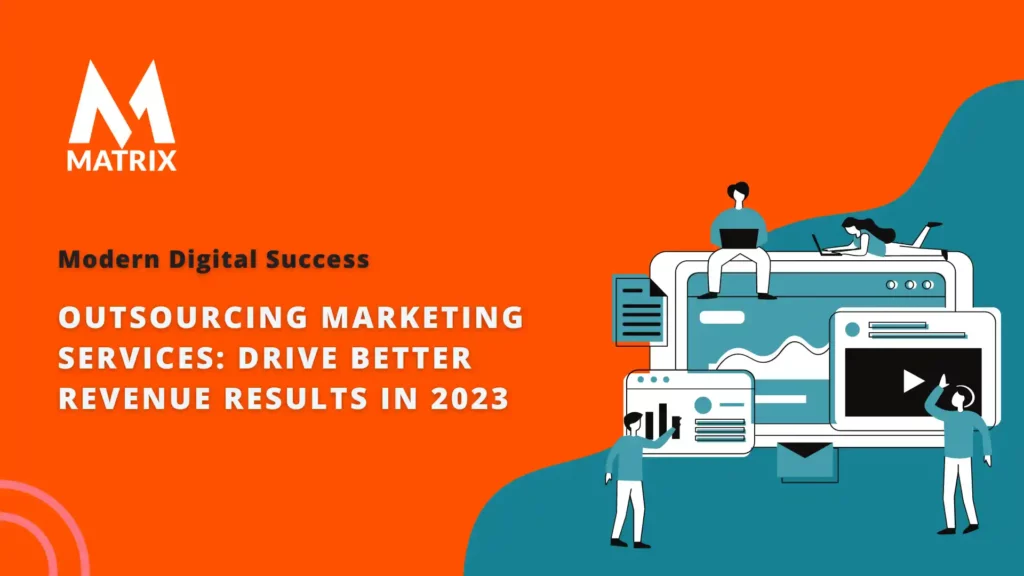Mastering the Art of AI in Marketing: Opportunities, Challenges, and All You Need To Succeed
Introduction
The growing popularity and usability of ChatGPT and various powerful Artificial Intelligence (AI) tools have left users spellbound. The results are now more accurate than ever and have come very close to mimicking human behavior.
Of course, we had already seen this coming, and machines were already adept at helping humans perform their tasks better. A great example is tools that leveraged the power of machine learning algorithms to provide the best-match output when asked to make a video of pictures.
The results often amazed users and showed how well machines are now getting when asked to do tasks requiring frequent human intervention.
But with AI, the game has changed altogether.

AI drives growth and engagement as businesses strive to stay ahead in an increasingly competitive marketplace. AI transforms how businesses interact with customers, from automating routine tasks to personalizing messaging for specific audiences.
But even before ChatGPT took the world by storm, AI had started to make a significant impact in the marketing space.
In this blog, we’ll explore the role of AI in marketing and delve into the opportunities and challenges of leveraging this powerful technology. We’ll discuss the impact of AI on businesses in their marketing strategies and examine its growth and success.
Whether you’re a marketing professional looking to stay ahead of the curve, a business owner exploring new ways to engage customers, or simply someone curious about the intersection of AI and marketing, this blog has something for you.
Let’s dive into the world of AI in marketing and discover how this technology can help businesses achieve their marketing goals.
How Is AI Making an Impact On Marketing?
Before we dig deeper into the value of AI, let us first understand how it is revolutionizing the marketing domain. According to the AI Marketing Benchmark Report 2023 published by Influencer Marketing Hub, there are several notable findings that we need to know of.
As per this report,
- 71.2% of marketers think that AI can outperform humans at their jobs
- 61.4% of marketers are already using AI in some of their marketing activities
- 54.5% of marketers have a favorable view that AI will significantly enhance marketing processes
- 44.4% of marketers have used AI in some form for their content production
With such positive views on the use of AI in marketing, the obvious question that comes to mind is, why isn’t AI completely replacing humans yet?
As provided in the same report, the answer concerns our current understanding of what AI can achieve.
41.9% of the respondents to this survey mentioned the lack of understanding as the biggest reason for not using AI, and 23.7% quoted the high cost of implementation as the reason.

Looking at the vast amounts of opportunities and the number of marketers already leveraging AI, the future suggests that AI will only increase as it gets better and more personalized. In 2021, the market for AI in the marketing sphere was $15.84 billion, which is now valued to increase to $107.5 billion by 2028.
These are just a few basic examples of how AI is making an impact in marketing. Businesses can gain a competitive advantage, improve customer engagement, and drive growth and revenue by leveraging the power of AI.
As with any new technology, some challenges come with implementing AI in marketing.
In the next section, we’ll explore these challenges in more detail.
Challenges for AI in Marketing
While many opportunities are presented by using AI in marketing, businesses must also navigate significant challenges. Some of the key challenges when leveraging AI in marketing include the following.
Insufficient IT Infrastructure and High Processing Power
With great power comes greater processing and significantly high IT spending!
AI requires high processing power and a huge IT infrastructure to function effectively. This can be a significant challenge for smaller businesses with limited resources.
In addition, businesses must ensure that their IT infrastructure can support the large volumes of data required to train and run AI models. This means they require significant investments in hardware and software, which is only sometimes feasible for all businesses, especially for spending on marketing needs.
Lack of Talent and Skilled Resources
Implementing AI in marketing requires specialized skills and resources, which not all businesses may have. Businesses need individuals skilled in data science, machine learning, and artificial intelligence, along with someone who can make business sense from numbers.
However, these individuals are in high demand and can be difficult to find. In addition, the cost of hiring these experts can be prohibitive for many smaller and medium-sized businesses.
As a result, many companies are now turning to external vendors and consulting firms specializing in AI to help them implement these technologies.
While this can be an effective solution, it is still expensive and may only be feasible for some.
Ethical and Privacy Concerns
As AI becomes more prevalent in marketing, ethical considerations become more important. As per PwC’s Global AI Study, privacy and protection of sensitive data were one of the biggest concerns for organizations when implementing any AI technology for their business.
Businesses must ensure that they use AI transparently and fairly and respect customer privacy. This is particularly important when using customer data to train AI models.
There is also a risk of perpetuating biases or discriminating against certain groups if the data used to train AI models is biased.
For example, if the data used to train an AI model is biased against women or people of color, the model may produce biased results. This might lead to unintended consequences, such as reinforcing stereotypes or discriminating against certain groups.
Businesses must also ensure that they are complying with data privacy regulations like GDPR and CCPA. This requires businesses to be transparent about how they use customer data and to obtain explicit consent from customers before gathering and using their data.
Huge Initial Investment and ROI Measurement
Implementing AI in marketing can require a significant initial investment in hardware, software, and expertise. This can be a barrier for many businesses, particularly smaller ones with limited resources.
In addition, measuring the ROI of AI in marketing can prove challenging. While AI can help businesses optimize their campaigns and improve customer engagement, it can take time to quantify the impact on revenue and growth.
To overcome these challenges, businesses must carefully evaluate the costs and benefits of implementing AI in their marketing strategies. They should also work with experts to ensure that they are using AI in a way that respects customer privacy.
By taking these steps, businesses can ensure that they are leveraging the power of AI responsibly and effectively.
Opportunities for AI in Marketing
Artificial Intelligence (AI) can be applied in various areas of marketing, presenting numerous opportunities for businesses to improve their marketing strategies and campaigns. Here are some specific areas where AI can be used.
Tracking Your Competition
AI-powered tools can be used to monitor competitors’ marketing activities in real time, allowing businesses to respond quickly to changes in the market.
These tools can analyze competitors’ social media campaigns, search engine optimization, content marketing, and other marketing activities.
Using these reports on your competition, you can make specific data-driven decisions and ensure you are always a step ahead.
Hyper-Personalization
In today’s world, directly conversing with your customers is extremely important. While humans are the best way to generate a 1-1 relationship between your brand and your customers, recent developments in AI are helping make this a lot more efficient.
AI can create highly personalized campaigns that speak directly to each customer’s unique interests and needs based on available data points and specific events.
This can include personalized product recommendations, personalized content, and personalized offers that are triggered depending on the activity and interest of the customer.
Video Creation
AI can be used in video creation in various ways, including video editing, text-to-speech, and voiceovers. For example, AI-powered video editing tools can analyze video content, automatically select the best clips, add transitions, and create polished final products.
In addition, these tools can make a photo video or even recommend enhancements, templates, and copyright-free audio.
Text-to-speech and voiceover AI-powered tools can automatically generate high-quality voiceovers for videos, saving time and money while increasing production quality. Plus, with advanced text-to-video editors now being offered, these platforms completely revolutionized the video creation game.
Content and Copywriting
AI can automate content creation by generating ideas, researching topics, and writing high-quality content. ChatGPT has already showcased just how well it can get this done, and there are tons of other tools like Jasper, Copy.ai, QuillBot, and other platforms which can help writers write, edit, proof-read, and do a plagiarism check on their content.
AI-powered content creation tools can also analyze user data and generate personalized content tailored to users’ interests and preferences. In addition, they can automatically generate ad copy, email subject lines, and website copy.
This helps save time and dramatically increases the efficiency of the content management process.
Use of AI in Advertising
For advertising, AI can significantly improve the effectiveness of campaigns by analyzing user data and targeting the right audience with a relevant message at the right time.
AI-powered marketing tools can create personalized ad experiences that speak directly to each user’s unique interests and preferences, increasing the likelihood of engagement and conversions.
These tools can also recommend focus areas for creating advertising based on data collected from the brand’s existing ads, making it more user-centric and impactful.
Use of AI for Strategy and Decision Making
AI can give recommendations and provide valuable insights to aid decision-making. AI-powered analytics tools can analyze large amounts of data and identify trends and patterns humans may miss.
This information can help businesses make informed decisions about marketing strategy, such as which channels to invest in, which campaigns to prioritize, and how to optimize marketing spend.
Social Media Marketing
AI can optimize social media marketing by analyzing data to identify trends and patterns. These can help marketers plan content for social media and determine the right approach for their brand marketing.
For example, using these data points, social media marketers can determine the proper placement for visual content for social media engagement and gain a higher viewership and engagement.
Email Marketing
AI can personalize email marketing campaigns based on each customer’s preferences, behavior, and history. As a result, AI-powered tools can create highly targeted and personalized email campaigns that are more likely to be opened and engaged with.
According to Forbes, 41% of marketers have generated higher revenue from email marketing using AI and have seen improvement in click-through and open rates.
Website Development
AI can optimize the website for better user experience and conversion rates. AI-powered tools can analyze website data to identify areas for improvement, such as website speed, design, and content.
AI can also automate tasks such as customer services by implementing chatbots that leverage AI to provide accurate and relevant answers to their customers.
Podcasts
AI can analyze podcast data to understand listener behavior and preferences. With many text-to-speech options providing almost human-like voice output, businesses can convert their blogs or text-based content into podcasts.
This helps them leverage existing content to reach a whole different audience base.
In Summary: How Can You Best Implement AI for Your Marketing Needs?
In conclusion, AI is transforming the marketing world, offering businesses unprecedented opportunities to streamline processes, personalize their messaging, and optimize their campaigns.
From video creation to content and copywriting, advertising, strategy, and decision-making, AI-powered tools are helping businesses reach their goals faster and more efficiently than ever.
To implement AI for your marketing needs, it is crucial to approach adoption thoughtfully and strategically.
- The first step is to identify your business goals and challenges and determine the areas of your marketing process where AI could offer the most value. This could include video creation, content, copywriting, advertising, strategy, and decision-making.
- Next, consider the AI-powered tools that align with your business needs and goals. These could range from video editing software to chatbots to predictive analytics tools. Choose the tools that are best suited to your specific marketing needs.
- Finally, invest in training and development to ensure your team has the necessary skills and knowledge to work with these AI-powered tools effectively. This could involve hiring AI experts, providing training programs, or partnering with external agencies that specialize in AI-powered marketing solutions.
By following these steps and remaining vigilant about the ethical and privacy concerns surrounding AI adoption, businesses can implement AI-powered marketing solutions that deliver real value and impact.
About the Author
Name – Austin Davis
Bio – Austin Davis is a skilled content writer with 5 years of experience specializing in creating digital marketing content. With a passion for storytelling, Austin has developed a reputation for crafting engaging and effective content that resonates with target audiences and drives business results.
LinkedIn profile




